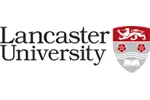We're moving! This site will be relocating to goingto.university in 2026. Please update your bookmarks to the new address.


the United Kingdom
Lancaster University| The award | How you will study | Study duration | Course start | Domestic course fees | International course fees |
|---|---|---|---|---|---|
| MSc, PG Cert, PG Dip | Full-time, Part-time | 1 - 2 year | - | - | - |
Do you want to lead breakthroughs in medical science? Perhaps you want to improve health outcomes and quality of life. Either way, Lancaster’s MSc in Clinical Research provides you with specialist training to advance your career.
The knowledge and skills you gain during the programme will prepare you for a wide range of rewarding roles, from healthcare research management to clinical trial coordinator.
Why Lancaster?
Why should I study Clinical Research?
Advances in treatments, therapies and healthcare are only possible with clinical research. Research is the gateway to possibility – transforming hypotheses and ideas into robust, tried and tested treatments that can be rolled out to communities with confidence.
Clinical research helps us understand what works and what doesn’t, identifying more effective and efficient treatments while highlighting important side effects and safety considerations.
This MSc is the third in our suite of clinical research courses. We also offer the following:
Is this programme right for me?
We welcome applications from:
What will I learn?
You will work with world-class researchers who are specialists in clinical research. They will share their expertise and prepare you to lead the entire healthcare research lifecycle, including:
With high-level training in advanced methodology, you will learn how to conduct research thoroughly, reliably and ethically. You will be able to interpret research findings and will develop important communication and presentation skills. You will learn to clearly articulate research outcomes, recommendations and implications and deliver recognisable impact.
With plenty of optional modules to choose from, you can explore a range of our team’s specialist fields, including quality improvement, drug development, infectious disease modelling or spatial statistics.
Translating research into practice
We have a firm focus on real-life application, and this programme explores in depth how research can be translated into healthcare policy and practice – where it can make a meaningful difference.
You will have the opportunity to develop and undertake a supervised, practice-based project, using your enhanced knowledge and skills to delve deeper into a topic you’re passionate about – ranging from biostatistics and epidemiology to public health, palliative care or the social and ethical aspects of health and medicine.
How will I study?
This flexible programme can be taken on a full or part-time basis, and its format enables you to fit in studying around your work and other commitments.
Taught modules are delivered through whole-day sessions of face-to-face teaching, supported by flexible online resources, discussions and collaborations using Lancaster University’s virtual learning environment.
Below are some suggested courses at other providers that you may also be interested in:
Master's Degree (MSc) in Responsible Artificial Intelligence MSc
OPIT - Open Institute of Technology
Find out moreArt and Design - Advanced Master Masters by Research
KdG University of Applied Sciences and Arts
Find out moreLanguages and Cultures (Middle East, Africa, South and Southeast Asia) and ... BA
SOAS University of London
Find out moreCultural Heritage: Sciences, Technologies and Diagnostics BSc
Dipartimento di Scienze della Terra, University of Milan
Find out moreInternational Qualified Teacher Status (iQTS) with PGCE PGCE, QTS (Primary)
University of Derby Online Learning
Find out moreIf you do not meet the entry requirements for this course then consider one of these postgraduate preparation courses from another institution:
Graduate Diploma of Engineering (Industrial Automation)
Engineering Institute of Technology
Find out moreGraduate Diploma in Strategic Management Level 7
New Zealand Management Academies (NZMA)
Find out moreThere are 477 other courses listed from Lancaster University. A selection of these are displayed below:
Join the StudyLink email list and never miss a chance to turn your study abroad dreams into reality!

Find out more about studying in the United Kingdom
As an international student you may require a valid visa to study at Lancaster University. Read more about the requirements in our Guide to the United Kingdom International Student Visa Requirements.